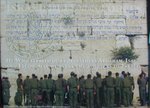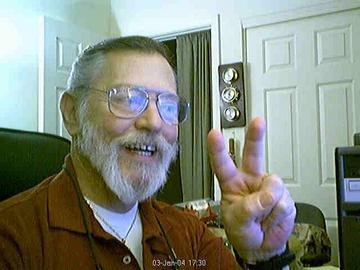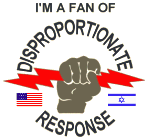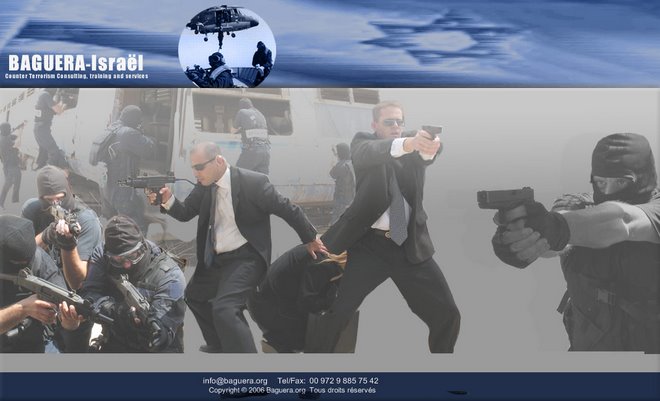Those three chunks of wisdom were given, in the 1920s, to a young Army officer named Dwight D. Eisenhower by his mentor, Major General Fox Conner. The advice he gave reflected an understanding that stretched beyond the details of warfare. It was an understanding of the American people, what they think and feel: We are not a warlike nation, we like having allies, and we demand quick results.
Americans may be bored with the war on terror, but our enemies are not. The line attributed to Leon Trotsky applies: "You may not be interested in war, but war is interested in you." In the last four weeks we have seen three terrorist plots thwarted within the United States. It's simply a matter of time before one succeeds.
In past conflicts we had slogans: "Back the attack." "Free a man to fight." "V for Victory." "Keep e'm Flying." In the current struggle against terrorism the only thing we've come up with is, "If you see something, say something." What an inspiration. Off to battle. Even the term, "war on terror" has come under assault. Now a terrorist attack is called a "man-made disaster," like the man-made disaster that killed 3,000 Americans in 2001.
Today, America faces a morale crisis. The American people, who were never made part of the war on terror by President Bush, have been pushed away even further by President Obama. While the president addressed a joint session of Congress on health care, we have seen no similar effort to stir the nation for the international battles before us. Indeed, some polls show that Americans are souring on Afghanistan, where the hot war is now blazing, and where the attacks of September 11, 2001, were planned, and then celebrated.
Our morale problem is something to be taken far more seriously. Armies don't go to war. Nations go to war. The ultimate weapon is not a new plane or ship. The ultimate weapon is the American people. But America has been fighting the war on terror for eight years, and, reflecting Fox Conner's admonition - never fight for long - time is taking its toll on morale.
American presidents, up through John F. Kennedy, seemed to have a knack for raising the American spirit. Franklin D. Roosevelt, in particular, worried about the effects of morale on the war effort. He even feared that Americans would eventually forget the Japanese attack on Pearl Harbor that took place on December 7, 1941. Right after the attack, the White House contacted Hollywood and asked that a song be written to boost American morale. The result was the anthem, "Remember Pearl Harbor." And four months after the attack, Roosevelt sent the aircraft carrier USS Hornet dangerously close to Japan to launch the famous Doolittle raid. He knew that the raid would not do much damage, but would electrify the American spirit. He was right about both the song and the raid.
Roosevelt was a master of morale. And he had in his counterpart in Britain, Winston Churchill, a man who used the English language as a weapon, to stir his people to battle.
We see almost none of that today. The last president to truly understand the importance of maintaining the spirit of the nation was Ronald Reagan, and he left office two decades ago. With the possible exception of George W. Bush, it is inconceivable that any president since would demand, "Mr. Gorbachev, tear down this wall!"
Those on the front lines of the war on terror worry about the lack of public involvement. The Major Cities Chiefs Association, made up of the chiefs of the 63 largest police departments in the U.S. and Canada, have now endorsed a concept known as iWATCH. The program uses brochures, public service announcements, and meetings with community groups, to increase awareness of the threat of terror, and to teach what types of behavior might legitimately raise a citizen's suspicion. It's about seven years late, but at least it's being done.
But far more needs to be done. To use a favorite word of this administration, the war on terror must be "reset." The sad fact is, though, that the Obama administration doesn't appear to have any zeal for resetting it. The steps that must be taken are not those that fit the Obama style, or the philosophy of the president's major advisers, who seem to regard the war on terror as a painful inconvenience, at best. But if we could have a dream "reset," what would it be? These would be the steps in such a reset:
First, the president would address the American people on the specific subject of national security, not relegate security to a list read off in the State of the Union. He would avoid his natural tendency to intellectualize - to speak vaguely, without prescribing any course of action. He would lay out before the people the nature of the threat, that it is continuing, and is based on an ideology. He would use visual effects, like maps, and actual terrorist bombs that have been discovered. He would starkly show the effects of a nuclear device going off in an American city to illustrate the danger of such weapons falling into terrorist hands. In World War II, President Roosevelt used maps in radio addresses, asking his audience to buy similar maps and follow with their fingers as he described where events were taking place. Map stores were sold out.
Television is a powerful weapon in the hands of a president, and it has not been used effectively to inform Americans, and boost their commitment, in the war on terror.
Mr. Obama would give these addresses periodically, like Roosevelt's fireside chats, making the war on terror a continuing story, rather than an intermittent talking point. He would discuss plots that have been thwarted. He would compare the struggle to the Cold War, and how Americans fought it for four decades, with little complaint, until victory. He would stress to the nation that the threat of terrorism may well grow, rather than diminish, if terror groups feel they are on the verge of success, or acquire weapons of mass destruction.
And he would emphasize the consequences of losing. Terror groups would expand, and operate more freely against American targets, both overseas and at home. Our allies, having lost faith in us, would cut deals with our enemies. Our economy could be severely damaged, as terror organizations, operating in the same manner as organized crime, demand that nations, foreign companies, and labor unions, not buy or handle American goods.
Some would say this is overkill, but it is not. Eisenhower said that if you have a problem that is difficult to solve, enlarge the problem. We have, over the years, diminished the issue of terrorism in the minds of our people, sometimes making it appear to be a local, technical, or legal issue. A president needs to stress that this battle is as important as any ever fought, that it is global war by other means.
Second, Mr. Obama would, using Reagan's example, speak over the heads of the media, directly to the population. Statements at press conferences get chewed up by assorted pundits. In recent decades we have seen the media drift further and further to the left, to a kind of European style of journalism, where facts are mixed with a generous serving of opinion, not all of it well informed.
Third, the administration would exude a sense of urgency about the war on terror, something it simply has not done. Spending 25 minutes with our Afghanistan commander, General Stanley McChrystal, on the tarmac in Copenhagen, just doesn't cut it. Mr. Obama should look back at the stagecraft associated with meetings, in past wars, between presidents and generals. They were considered major events, with enormous respect shown for the military and its contribution. The very staging of the meetings signaled to Americans that something very important to the future of their families was going on.
Fourth, and very critical, the United States, in fighting the war on terror, would show a decent respect for the opinions of mankind, but no more than a decent respect. You cannot successfully wage an international struggle while constantly worrying about popularity. Popularity may have its place, but defending the nation takes precedence. Some American leaders seem nostalgic for the time right after the 9-11 attacks when, they recall, America had the world's sympathy. They are nostalgic, though, for a time that never was. Whatever sympathy existed after the attacks faded within days, replaced by the start of the carping anti-Americanism we've come to know. Indeed, the BBC was on the air 48 hours after the attacks with a vicious anti-American program.
The war on terror, or whatever phrase is used, is ongoing, but you would never know it. It needs to be reset in the minds of the American people, who showed endurance and courage during the Cold War. Until it is, we may see public officials guided by opinion polls showing a lack of commitment to the battle, and the consequences for this country could well be diminished power and influence, increased vulnerability to attack, disillusionment among allies, and a vastly greater chance for ideological enemies to acquire the means to make the 9-11 tragedy look like a minor event.
Copyright © 2009 Hudson New York. All rights reserved.
































 While doing IDF (Israel Defence Forces) reserve duty on a mountain overlooking the
While doing IDF (Israel Defence Forces) reserve duty on a mountain overlooking the 





Eisenhower pushed Israel out of Sinai in 1957 and promised that the US will keep Tyran Straits open. When Egypt closed the Straights ten years later, Anerica didn't intervene.
ReplyDelete